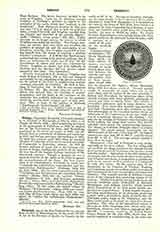

Vering, FRIEDRICH HEINRICH, a German canonist, b. at Liesborn in Westphalia, March 9, 1833; d. at Prague, March 30, 1896. After completing his course at the gymnasium of Paderborn in 1850, he studied law at the Universities of Bonn and Heidelberg, graduated at the latter university in 1856, was admitted there as privatdocent of Roman and canon law in 1857, and became professor extraordinary in 1862. He held this position until 1875 when he accepted the chair of canon law at the newly-erected university of Czernowitz in Bukowina, Austria. In 1879 he became professor of canon law at the German University of Prague, holding this position till his death. He was one of the leading German canonists of the nineteenth century. Though a layman, he was a staunch defender of the rights of the Church against the encroachments of the State. His best known work is his comprehensive textbook on canon law: “Lehrbuch des katholischen, orientalischen and protestantischen Kirchenrechts” (Freiburg, 1876; 3rd ed., ibid., 1893). His two other important works are: “Geschichte and Institutionen des romischen Privatrechts” (Mainz, 1865, 5th ed., entitled: “Gesch. and Pandekten d. rom. and heutigen gemeinen Privatr.”, Mainz, 1887); and “Romisches Erbrecht in historischer and dogmatischer Entwickelung” (Heidelberg, 1861). He also wrote the eighth volume of Philipps’s “Kirchenrecht” (Mainz, 1889) and numerous smaller juridical treatises. From 1860 he was, with Moy de Sons, joint editor, and from 1862, sole editor, of “Archiv fur katholisches Kirchenrecht” (Mainz).
MICHAEL OTT

